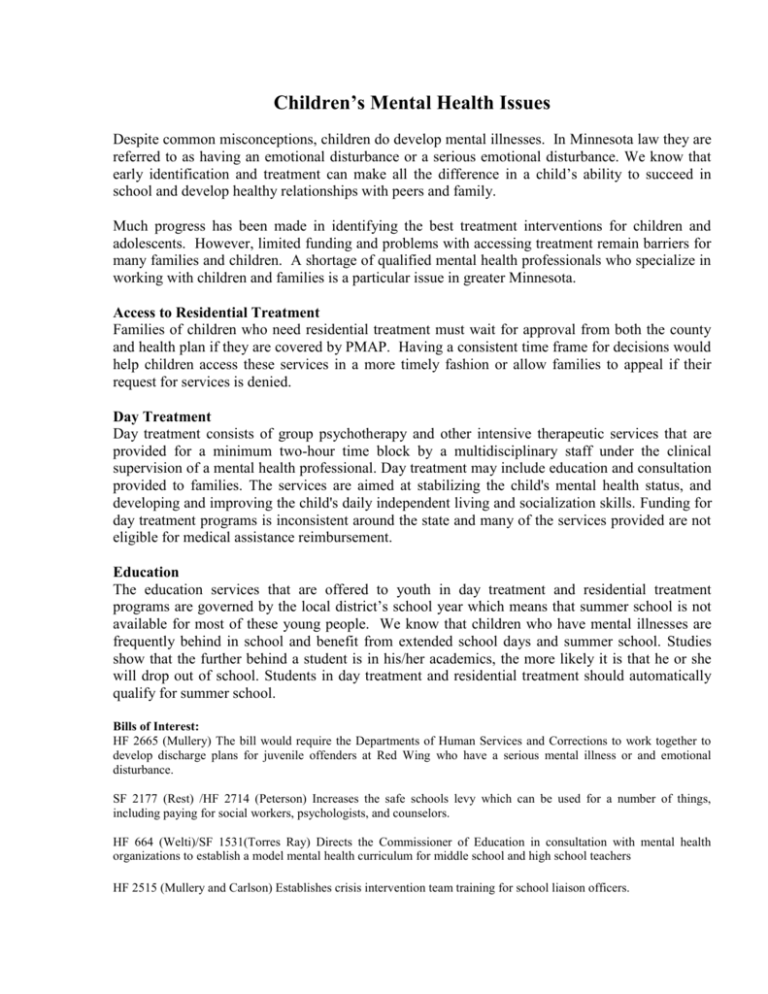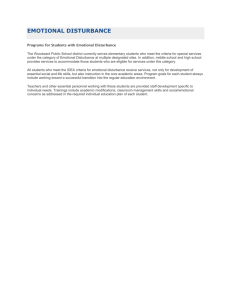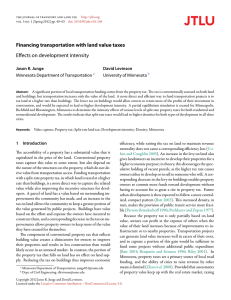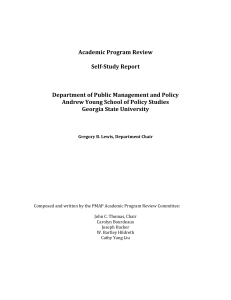Children`s Mental Health Issues
advertisement

Children’s Mental Health Issues Despite common misconceptions, children do develop mental illnesses. In Minnesota law they are referred to as having an emotional disturbance or a serious emotional disturbance. We know that early identification and treatment can make all the difference in a child’s ability to succeed in school and develop healthy relationships with peers and family. Much progress has been made in identifying the best treatment interventions for children and adolescents. However, limited funding and problems with accessing treatment remain barriers for many families and children. A shortage of qualified mental health professionals who specialize in working with children and families is a particular issue in greater Minnesota. Access to Residential Treatment Families of children who need residential treatment must wait for approval from both the county and health plan if they are covered by PMAP. Having a consistent time frame for decisions would help children access these services in a more timely fashion or allow families to appeal if their request for services is denied. Day Treatment Day treatment consists of group psychotherapy and other intensive therapeutic services that are provided for a minimum two-hour time block by a multidisciplinary staff under the clinical supervision of a mental health professional. Day treatment may include education and consultation provided to families. The services are aimed at stabilizing the child's mental health status, and developing and improving the child's daily independent living and socialization skills. Funding for day treatment programs is inconsistent around the state and many of the services provided are not eligible for medical assistance reimbursement. Education The education services that are offered to youth in day treatment and residential treatment programs are governed by the local district’s school year which means that summer school is not available for most of these young people. We know that children who have mental illnesses are frequently behind in school and benefit from extended school days and summer school. Studies show that the further behind a student is in his/her academics, the more likely it is that he or she will drop out of school. Students in day treatment and residential treatment should automatically qualify for summer school. Bills of Interest: HF 2665 (Mullery) The bill would require the Departments of Human Services and Corrections to work together to develop discharge plans for juvenile offenders at Red Wing who have a serious mental illness or and emotional disturbance. SF 2177 (Rest) /HF 2714 (Peterson) Increases the safe schools levy which can be used for a number of things, including paying for social workers, psychologists, and counselors. HF 664 (Welti)/SF 1531(Torres Ray) Directs the Commissioner of Education in consultation with mental health organizations to establish a model mental health curriculum for middle school and high school teachers HF 2515 (Mullery and Carlson) Establishes crisis intervention team training for school liaison officers.










